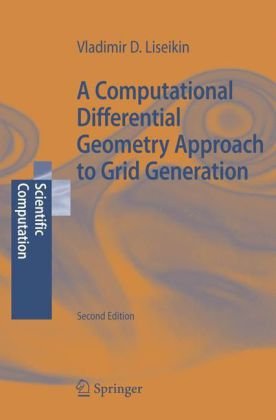

Most ebook files are in PDF format, so you can easily read them using various software such as Foxit Reader or directly on the Google Chrome browser.
Some ebook files are released by publishers in other formats such as .awz, .mobi, .epub, .fb2, etc. You may need to install specific software to read these formats on mobile/PC, such as Calibre.
Please read the tutorial at this link: https://ebookbell.com/faq
We offer FREE conversion to the popular formats you request; however, this may take some time. Therefore, right after payment, please email us, and we will try to provide the service as quickly as possible.
For some exceptional file formats or broken links (if any), please refrain from opening any disputes. Instead, email us first, and we will try to assist within a maximum of 6 hours.
EbookBell Team

0.0
0 reviews
ISBN 10: 3540824022
ISBN 13: 9783540824022
Author: Vladimir D Liseikin
The process of breaking up a physical domain into smaller sub-domains, known as meshing, facilitates the numerical solution of partial differential equations used to simulate physical systems. This monograph gives a detailed treatment of applications of geometric methods to advanced grid technology. It focuses on and describes a comprehensive approach based on the numerical solution of inverted Beltramian and diffusion equations with respect to monitor metrics for generating both structured and unstructured grids in domains and on surfaces. In this second edition the author takes a more detailed and practice-oriented approach towards explaining how to implement the method by: Employing geometric and numerical analyses of monitor metrics as the basis for developing efficient tools for controlling grid properties. Describing new grid generation codes based on finite differences for generating both structured and unstructured surface and domain grids. Providing examples of applications of the codes to the generation of adaptive, field-aligned, and balanced grids, to the solutions of CFD and magnetized plasmas problems. The book addresses both scientists and practitioners in applied mathematics and numerical solution of field problems.
Introductory Notions
General Coordinate Systems in Domains
Geometry of Curves
Multidimensional Geometry
Algorithms and Applications of Advanced Grid Technology: Front Matter
Comprehensive Grid Models
Inverted Equations
Numerical Implementation of Grid Generators
stanford differential geometry
mathematics computation and geometry of data
m a geometry
differential geometry machine learning
numerical differential geometry
differential and computational geometry